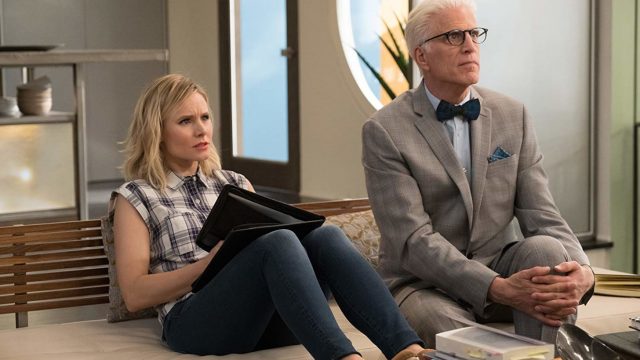Good morning, sweeties! Are you having a good 2020? Are you all caught up on The Goop Lab? Anyways, on with the articles….
On the 24th, Jeff Beer of Fast Company, argued that The Goop Lab is the future of TV:
“Each episode of The Goop Lab features company staffers checking out a variety of wellness fads, tools, techniques, and teachings. My colleague KC Ifeanyi describes it as ‘like a deep dive into a Goop article with emotional narratives woven throughout.’ As Loehnen told Ifeanyi, ‘I know that the people who are big fans of the brand will love the show and feel like they’re able to go a little bit deeper on some of these topics that they’re already familiar with,’ she said. ‘But my hope for the show is that for all the people who have heard of us through some big media moment that’s probably not that emblematic of who we really are as a brand [will think about us differently]. It might inspire them to examine their own triggers.'”
David Sedaris wrote about his sister Amy, for Elle, on the 27th:
“Cut to 50 years later, when my sister actually has such a show. It’s not as earnest as our childhood version, but its bones are the same, and it’s been nominated three times for an Emmy Award. At Home With Amy Sedaris, it’s called, and its second season had just begun airing when my boyfriend Hugh and I, who left New York in 1998, returned, at least part time, and got a place on the Upper East Side. A few days after moving in, I had to leave on a 45-city lecture tour, and by the time I got back, Hugh had essentially sprayed the place, the way a tomcat would, and made it his own.”
On the 28th, Vanity Fair shared Julie Miller’s interview of Lee Grant:
“That’s all that exists in Hollywood for women. If you’re not beautiful, you’re finished. You can be cute. You can be pert. But you have to be young. It’s not like with the English, where there is a different kind of measurement. In England, you can be a 90-year-old woman, respected as an actor, and work.”
Also on the 28th, Grace Robertson analyzed why the work of Michael Schur leaves her cold, on Gem of Amara:
“The problem is just where the series allowed its optimism to be directed. With the main characters increasingly becoming the best, most likeable versions of themselves, there was no shortage of warmth in the Parks department. But for serialised storytelling in which the heroes triumph over adversity, and even just for telling funny jokes, conflict is always necessary. You cannot remove conflict from good storytelling; you can only shift it around. And so, with little of it coming from the characters themselves, Parks had to rely on external forces to create tension. As our friends in Pawnee became nicer and nicer, the town got meaner. While Leslie shown more and more to be a superhero, a uniquely great person, Pawnee at large came to hate her for no good reason the show could articulate. The recall vote, in which the public chose to remove the greatest person on Earth from office while keeping a bunch of clowns and crooks, underscored the central view of the show at this point: Leslie good, Leslie’s friends good, normal people bad.”
Angie Martoccio talked to Kiernan Shipka on the 29th, over at Rolling Stone:
“I think in the first two seasons, justice was always on Sabrina’s mind. It was instinctual for her to stand up for people and find something wrong with everything. Which is not inherently a bad thing, [it’s] actually kind of beautiful thing. In this third season, she’s growing into that, but she walks the walk. She’s putting herself at risk a lot more for the people that she loves. She’s doing things to hopefully make the world — make hell — a better place. I think it’s a humongous step for her in that way.”
Finally, Georgia Davis of Film School Rejects, discussed the career of Park So-Dam, on the 30th:
“One of the most memorable figures in Parasite is that of Ki-Jung, played by South Korean actress Park So-Dam. Ki-jung is the daughter of the Kim family, the film’s central characters, who would assume the role of Jessica, an art tutor from Illinois, Chicago, in the Kim family’s attempts to infiltrate the Park residence. Park’s portrayal of the conniving Ki-Jung is one of the true highlights of Parasite, even earning her a nomination for the coveted Blue Dragon Award for Best Supporting Actress. Yet, much like her extremely talented co-stars, it comes as a shock to see their individual efforts being rewarded by the Western world. Despite the cast winning the Screen Actor’s Guild Award for Outstanding Performance by a Cast in a Motion Picture, few of their performances are noticed alone. Especially that of Park So-Dam, who has only received one nomination for her performance in Parasite with no wins.”
Enjoy!

